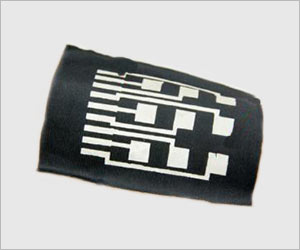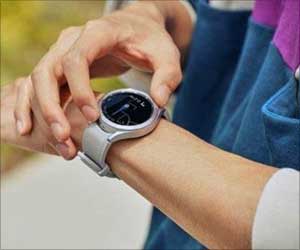
‘Assessment of wrist-worn fitness and heart rate (HR) monitors' accuracy is important for individuals who use them to guide their physical activity and for physicians to whom these individuals report HR readings.’
Tweet it Now
This study included 50 healthy adults; average age, 37 years; 28
participants were women. Participants wore standard electrocardiographic
limb leads and a Polar H7 chest strap monitor. Each participant was
randomly assigned to wear 2 different wrist-worn HR monitors. Four
wrist-worn monitors were assessed: Fitbit Charge HR (Fitbit), Apple
Watch (Apple), Mio Alpha (Mio Global), and Basis Peak (Basis). Heart
rate was assessed with the participant on a treadmill at rest and at
2,3,4,5 and 6 mph. Participants exercised at each setting for 3 minutes
to achieve a steady state; HR was recorded instantaneously at the
3-minute point. After completion of the treadmill protocol, HR was
recorded at 30, 60, and 90 seconds' recovery.
Across all devices, 1,773 HR values were recorded. When compared
with electrocardiogram, the HR monitors had variable accuracy. While the
Basis Peak overestimated HR during moderate exercise, the Fitbit Charge
HR underestimated HR during more vigorous exercise. Analysis showed
that variability occurred across the spectrum of midrange HRs during
exercise. The Apple Watch and Mio Fuse had 95 percent of differences
fall within -27 beats per minute (bpm) and +29 bpm of the
electrocardiogram, while Fitbit Charge HR had 95 percent of values
within -34 bpm and +39 bpm and the corresponding values for the Basis
Peak were within -39 bpm and +33 bpm."We found variable accuracy among wrist-worn HR monitors; none achieved the accuracy of a chest strap-based monitor. In general, accuracy of wrist-worn monitors was best at rest and diminished with exercise," the authors write.
"Electrode-containing chest monitors should be used when accurate HR measurement is imperative. While wrist-worn HR monitors are often used recreationally to track fitness, their accuracy varies; 2 of 4 monitors had suboptimal accuracy during moderate exercise. Because cardiac patients increasingly rely on these monitors to stay within physician-recommended, safe HR thresholds during rehabilitation and exercise, appropriate validation of these devices in this group is imperative."Source-Eurekalert













